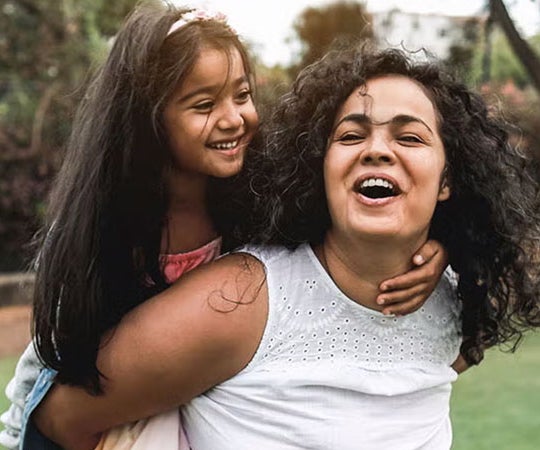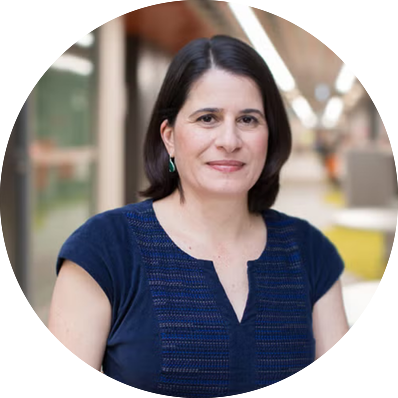Why study the Graduate Certificate in Women’s and Children’s Health with UTS Online?
Top 100 University Globally1
Kick-start your career in leading the way in women's and children's health
Develop specialist skills in an in-demand industry to deliver impact where it matters
Study an industry-led curriculum that’s designed to meet the industry needs of the future
1QS World University Rankings, 2026.
Put woman and children at the heart of health
Who you are, or where you come from should not determine your health.
The UTS Online Graduate Certificate in Women’s and Children’s Health provides a strong foundation to pursue a career in women’s and children’s health.
Gain an understanding of the existing issues in women’s and children’s health, reflecting on how socioeconomic status, gender, political and social support, and country of residence impact women’s sexual, reproductive and maternal health.
Develop fundamental skills and knowledge to provide high-quality care in women’s and children’s health and contribute to a changing industry, ensuring culturally safe and accessible healthcare is available.
This course may be used as an entry pathway into the Master of Women's and Children’s Health.

Who is this course for?
The UTS Online Graduate Certificate in Women’s and Children’s Health is for midwives, nurses and allied health professionals looking to:
- Develop the foundational knowledge to pursue senior and specialised roles
- Build on their existing skills and knowledge to advance into a career in women’s and children’s health
- Gain an understanding of the existing issues in women’s and children’s health, and contribute to a changing industry, ensuring culturally safe and accessible healthcare is available
- Adapt their skillset to meet the future needs of a rapidly changing and in-demand industry
- Establish a point of difference with the first postgraduate course of its kind
See entry requirements under course information for more eligibility information.
What you will study
The UTS Online Graduate Certificate in Women's and Children’s Health comprises four online subjects (24 credit points [CP] in total).
Complete all of the following subjects:
- Contemporary Women’s Health Issues
- The Child in the Contemporary World
- Global Perspectives on Sexual and Reproductive Health and Rights
- Legal and Ethical Issues in Women’s Health
Note: Most UTS Online subjects are valued at 6 credit points each. For detailed subject descriptions and further information, please download a course guide.
Flexible course options
The Graduate Certificate in Women’s and Children’s Health comprises 4 online subjects (24 credit points (CP) in total).
Students who complete the Graduate Certificate in Women’s and Children’s Health may be eligible to advance to the Master of Women’s and Children’s Health, requiring only 9* additional subjects to complete the master's degree.
*The number of subjects completed may vary depending on the credit point (CP) value of the subjects elected.
Graduate Certificate
4 Subjects | 8 months
Or continue studying
Master
+9* Subjects | 24 months
Graduate with a Master's degree
For more information, download your course guide or speak with a Student Enrolment Advisor.
Learning outcomes
Establish a philosophy and practice that puts women and children at the heart of health
Reflect on politics, gender, history and tradition to establish a philosophy and practice designed to meet the individual needs of each woman. Build an ability to recognise the influence of gender, how it intersects with other dimensions of diversity, and the impact on equitable access to services and personal wellbeing.
Learn how to reflect on current practice, policy and research in women’s and children’s health
Critique the legal and ethical issues in women’s health, specifically pertaining to reproduction and birth, through case studies, and reframe these to a woman-centred philosophy. Explore the sociocultural and environmental impacts on children over the past two decades to understand how the unique challenges faced by children impact their health and wellbeing.
Reflect on cultural contexts to provide individualised care
Women of all cultures have individual needs, and not all are afforded the same quality of healthcare. In this course you’ll gain an understanding of the diverse needs and expectations of Indigenous Australian women and women from diverse cultural contexts. Learn to critically reflect on these contexts to inform your professional cultural capability to provide individualised and equitable care.
Gain the foundations of contemporary, strengths-focused leadership
Build the strength, confidence and vision to drive change in women’s and children’s health. Model evidence-based practice and respectful care in your practice. Develop the foundational skills to move into a leadership role including effective communication for various healthcare needs, collaboration and responsiveness in healthcare settings.
Course information
Entry requirements
Applicants must have one of the following:
- Completion of an Australian bachelor’s degree or higher qualification, or overseas equivalent, in Nursing, Midwifery, Public Health, Rehabilitation Therapies, or another recognised health discipline
OR
- A minimum of two years’ full-time (or equivalent part-time) relevant professional work experience within the past five years in an allied health profession, such as social work, public health practice, occupational therapy, psychology, physiotherapy, speech pathology, dietetics, or nutrition
Supporting documentation to be submitted with the application
For applicants who need to demonstrate professional work experience:
- Curriculum Vitae
- Evidence of current professional registration (where applicable), such as registration with the Nursing and Midwifery Board of Australia (NMBA) or the relevant professional body in the applicant’s home country
Eligibility for admission does not guarantee offer of a place.
Want to check your eligibility?
Not only do we have the right tools and support teams to help you – we have people who care about your success.
Career outcomes
The UTS Online Graduate Certificate in Women and Children’s Health provides foundational knowledge for healthcare professionals passionate about improving outcomes for women and children. This course equips you with essential skills to deliver effective, compassionate care in a range of settings.
Upon completion, graduates can pursue roles such as:
- Registered Nurse (Specialising in Women’s or Children’s Health)
- Midwifery Educator (Entry-Level)
- Child and Family Health Support Officer
- Community Health Worker (Women’s and Children’s Health)
$80,000
Average salary
Graduates of the Graduate Certificate in Women’s and Children’s Health can expect an average annual salary of $80,000, based on roles such as Registered Nurse (specialising in women’s or children’s health), Midwifery Educator (entry-level) and Community Health Worker.
(Talent)
26%
Growth in nursing and midwifery workforce
The nursing and midwifery workforce in Australia grew by 26% between 2013 and 2022, reflecting rising demand in women’s and children’s health.
(AIHW)
15%
of Australia's workforce in health care and social assistance
Health Care and Social Assistance employs 15% of Australia’s workforce, highlighting its critical role in the national employment landscape.
(Australian Bureau of Statistics)
Upcoming intakes
UTS Online courses have 6 intakes per year. The diagram below shows all upcoming intakes. Our next intake is highlighted below.
-
Jan
2026 -
Mar
2026 -
May
2026 -
Jun
2026 -
Aug
2026 -
Oct
2026
Meet our Course Director
"The Graduate Certificate in Women’s and Children’s Health is designed to introduce students to the concept of gender as a social determinant of health, and how this impacts the social, cultural, professional, and health needs of women and children."
This course aims to develop skills in working with a range of people, systems, and processes within health services and is the first step in developing in-demand skills to drive system-level change that meets the dynamic needs of communities, clinicians, governments and organisations."
Dr Vanessa Scarf
Associate Professor Vanessa Scarf, Director of Postgraduate Midwifery Studies
Download a course guide
Download a course guide to explore detailed subject descriptions, entry requirements, pathway options and fee information.
Frequently asked questions
Yes, upon successful completion of the Graduate Certificate in Women's and Children's Health, you have the opportunity to articulate into the Master of Women's and Children's Health, further enhancing your expertise and career prospects.
Graduates of the Graduate Certificate in Women’s and Children’s Health at UTS Online can pursue diverse roles within the healthcare and community sectors, including:
-
Policy and Project Officer
-
Health Promotion Officer
-
Nursing Support Worker
-
Community Health Worker
-
Health Policy Advisor
-
Nursing Manager
Assignments in our subjects are authentic, relevant and often grounded in your personal clinical context. They vary according to the subject and include, but are not limited to clinical reports, posters, online quizzes and vivas (oral assessment), podcasts, recorded presentations, education tools, proposals, protocols and professional portfolios. You will not be required to complete exams or group assignments to graduate the Graduate Certificate in Women’s and Children’s Health.
The Graduate Certificate in Women’s and Children’s Health at UTS Online provides a flexible online platform designed for healthcare professionals. Key features include:
-
Modules focused on practical skills in women’s and children’s health
-
Flexible schedules to accommodate your work commitments
-
Access to peer discussions, recorded lectures, and learning resources
Here’s a video example showcasing key features of our online learning platform, including tools designed to enhance your study experience.
For practical tips on balancing your studies with work and life, click here to learn how to achieve your goals. Remember, our team is just an email or call away to support you every step of the way.








